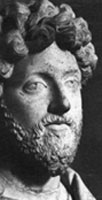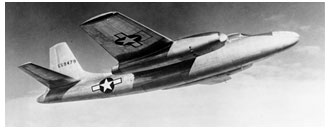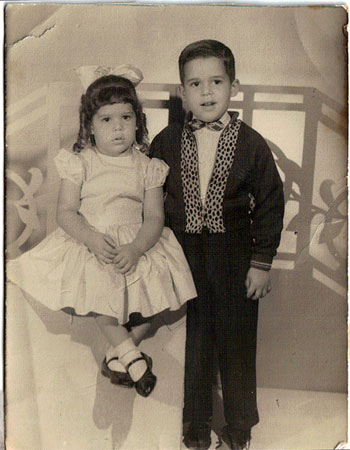Think of me as a life-long daydreamer, a photo-illustrator/writer, recently retired from the San Francisco Human Services Agency. Or as someone searching for the meaning of life while trying to discover the identity of Batman and the hiding place for the Holy Grail.

“Every man’s life is sufficient.” - Marcus Aurelius, MEDITATIONS
I was born in Havana, Cuba, on March 17, 1957. My mother says it was a Sunday. I was a healthy, 7-pound boy and this was a happy day for my family.
For some, on the other side of the world, it wasn’t such a happy day. A plane carrying the 7th President of the Philippines crashed unexpectedly, killing government officials and journalists. I still hope it wasn’t my fault.
Aside from my safe and happy landing on the small island, 1957 was also a good year for jazz, liberation movements and movies.
The day after I was born, tenor saxophonist John Coltrane recorded an album with “The Prestige All Stars” (with Kenny Burrell on guitar and Paul Chambers on bass) in New Jersey’s Rudy Van Gelder Studio.
Coltrane would return to that studio repeatedly over the next two months to record tracks with the Johnny Griffin Septet, Art Taylor’s All Stars, Thelonious Monk Trio, Mal Waldron Sextet and the Paul Quinichette/John Coltrane Quintet.
Within a month of my birth, during an engagement at New York’s Café Bohemia, Miles Davis fired John Coltrane and Philly Joe Jones for drug abuse. The celebrated Miles Davis Quintet would have to play on without them.
Maybe if I’d arrived on a different date, or if I hadn’t been born at all, this tragedy could have been avoided.
Coltrane, perhaps knowing instinctively that I was already here, cleaned up his act and recorded his own stuff before my third month of crawling around my family’s Habana Vieja home. His album “Coltrane” was released a few months later. This was the first time that he was in charge. This was his sound.
Maybe it was a good thing that I showed up when I did, though I didn’t hear Coltrane’s first album until I was in my twenties.
According to Wikipedia and the Gregorian calendar, March 17 is the 76th day of the year. In a leap year, it is 77th. Only 289 more days until next year.
I share the March 17, 1957, start date with Danny DeVito, William Gibson, Rob Lowe and Rudolf Nureyev.
In the years, decades and centuries prior to my arrival, some good, bad, memorable and very forgettable things took place on the 17th of March.
On that day, in 45 BC, the Battle of Munda began. When it was over, Julius Caesar’s armies had defeated the armies from Pompey, and he was designated the Roman dictator.

On March 17, 189, Marcus Aurelius (pictured) died at age 59, and his son, Lucius Aurelius Commodus, became Emperor of the Roman Empire. Commodus enjoyed cult-like status until he was assassinated in 192. The son was nothing like the father. One left us a book of philosophical tenets that are relevant to this day, the other was killed by a bunch of angry Senators in bathrobes and leather sandals.
Saint Patrick died on that date in 461 AD. I don’t know his first name, but I doubt he was a saint until later. Still, I have celebrated his life with the Irish whenever the possibility presented itself, which happens every year.
The HMS Queen Charlotte, a large warship from Britain, burned down on March 17, 1800. They think it was an accident caused by hay that fell on a match container. But who knows?
On the same day, in 1805, Napoleon became King of the Italian Kingdom. Not bad, for a guy five-foot-two.
The first professional union of baseball players (NAPBBP) was founded on March 17, 1871. It helped establish the Chicago Cubs and the Atlanta Braves. I was a baseball fan in Cuba until I discovered basketball in the U.S. I sucked at baseball.
On March 17, 1901, Alfred Newman dropped into the world. After some time as a musical child prodigy, he would go on to become a popular composer, arranger, and conductor whose music appeared in movies and on stages across the country. His work was nominated for 43 Academy Awards. He won 9 times. Do not confuse him with Alfred E. Neuman, who was not nominated even once and could not play a single note.
 Exactly one decade to the day before my scheduled arrival on the planet, the North American XB-45 Tornado took its first flight (March 17, 1947). This was the first operational jet bomber that could be re-fueled in the air, and it became a popular and successful plane, used extensively by the US Armed Forces.
Exactly one decade to the day before my scheduled arrival on the planet, the North American XB-45 Tornado took its first flight (March 17, 1947). This was the first operational jet bomber that could be re-fueled in the air, and it became a popular and successful plane, used extensively by the US Armed Forces.
Earlier that year, on January 16, a convoy of B-52s flew around the Earth. Five planes started and three completed the 24,874-mile flight. A few days later, at President Eisenhower’s inaugural parade, Air Force General LeMay said in a speech that the flight demonstrated our ability “to strike any target on the face of the Earth.”
This is the world I would be born in.
On March 17, 1951, Kurt Russell beamed into the world. On the big screen he would star in John Carpenter’s The Thing, Escape from New York and others, including the coolest Santa Claus that ever streamed on Netflix.
On the day before I was born, 3/16/1957, sculptor/photographer Constantin Brancusi died in Paris. He simply closed his eyes and never opened them again. He was 81 years old.
Brancusi was the most important sculptor of the 20th Century, and his vision would have an impact on me during my late teens and early ‘20s. I’ve imagined that as I was beaming in and he was beaming out, our modules crossed each other, and he threw something into my window that is bugging me to this day.
On March 20, three days after my birth, Spike Lee and Theresa Russell decided to join me in the world, and later that year, Bernie Mac and Steve Buscemi popped in. Better late than never boys.
In time I learned that I shared a similar starting date (in different years) with other popular jazz personalities like Nat King Cole (1919) and flutist Paul Horn (1930). And with rockers Paul Kantner (1941) from Jefferson Airplane and John Sebastian (1944) founder of The Loving Spoonful. Also, with Harold Brown (1946) drummer and singer for War and guitarist/songwriter Scott Gorham (1951) from Thin Lizzy.
On the year I was born, on January 15, Humphrey Bogart died in his sleep. In his bed. I would discover his magic in my late teens and early twenties at the Nuart Theater in West LA.
My generation completely abandoned Jazz for classic rock and MTV, but Jazz always held a special place in my heart.
Stanley Kubrick’s film “Paths of Glory” was released in 1957, as was Kurosawa’s “Throne of Blood.” Also, and this one’s big, “The Incredibly Shrinking Man.” Sci-fi of nearly all types still fascinates me in my later years.
Bergman’s “Seventh Seal” may have doomed me to a life seeking spiritual meaning and fulfillment in a culture based on repeated consumption of mass-produced gadgets and celebrity gossip, and “200 Million Miles to Earth” may have opened my eyes to the beauty of monsters on the loose and the tragedy of mankind’s opposition to nature.
On the year I was born Viking Press published Jack Kerouac’s “On the Road.” The New York Times review said it was “the most beautifully executed, the clearest and the most important utterance yet made by the generation Kerouac himself named as ‘beat,’ and whose principal avatar he is.”
The book went on to influence a generation of thinkers, artists, and musicians, including Bob Dylan, Van Morrison, Jerry Garcia, Tom Waits, Robert Frank, Hunter S. Thompson and others. And in time they influenced me.
In time I would realize that Kerouac’s journey through America, in search of God, was like my journey through life, in search of truth and meaning, both of which are typically “un-American” in nature, and very suspicious to the average consumer drone.
Neither Kerouac nor I ever found what we were searching for, though, perhaps, it’s still not too late for me… although my expectations are lowered with each birthday.
Before the year was over, Albert Camus became the second youngest winner of a Nobel Prize in Literature, “for his important literary production” about “the problems of the human conscience in our times.” I wonder what he would think about conscience in the Trump Age.
"I Love Lucy" came to an end after six successful TV seasons in 1957.
Elvis Presley purchased Graceland for $102,500 on the very day of my birth.
A few months later, on June 1, 1957, Carlos Castaneda became a naturalized U.S. Citizen (what a word!). Now that he was natural, he went to UCLA and wrote The Teachings of Don Juan. My favorite of his books remains Tales of Power, and The Art of Dreaming.
Only days later, Jerry Lewis premiered his first film without Dean Martin; The Delicate Delinquent. Like the French, I learned to love the minimalism in Lewis’ movies from the early ‘60s. My generation remains divided on Lewis. Not me.
On December 11 of the same year, illustrator Peter Bagge was born in New York. His “HATE” became one of my favorite comic books of all time.
But it wasn’t all jazz, movies and TV shows.
Just after my first birthday, in May of 1958, playwright Arthur Miller was found guilty of Contempt of Congress for refusing to “name names” to the House Un-American Activities Committee (HUAC). He was fined, sent to prison, blacklisted, and denied a US passport. His conviction was overturned the next year, but serious damage to our culture had already been done.
The idea that Americans would believe whatever bullshit was fed them was tested successfully by U.S. Republican Senator Eugene McCarthy. He lied through his teeth and dug in his heels… a method used shortly thereafter by the anti-Castro movement, the magic-bullet-CIA and later by Donald J. Trump and his gang of insurrectionists.
HUAC, a right-wing Congressional group that had terrorized Hollywood with a Blacklist since 1947, started coming to an end on my birth year, due to a lawsuit by John Henry Faulk, a radio talk show host fired by CBS Radio. HUAC continued to enforce the Blacklist until the lawsuit was settled in 1963.
The collective presence of these movies, music, personalities, and political injustices would have an influence on how I perceive the world.
Aside from everything else I might have been, I was a space-age baby.
At the time of my birth, Cuba had been in political turmoil for years, and just before I reached the glorious age of two (1959), the Castro Brothers marched triumphant on the streets of Havana, with Che, Camilo, and the rest of the barbudos.
This was a time of pride and fear for many Cubans. Some left the island. Some celebrated the expectation that José Martí’s ideals of a just society with racial equality would finally be implemented on an island that had passed from one empire to another. This was the first time that Cuba was not controlled by a big empire to which she was nothing but a piece of property.
In November of 1959, before the Cuban Revolution was a year old, my sister was born. I was no longer the only child. Now there were two of us.


10/30/2025
11:04:30 AM